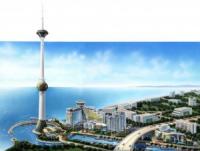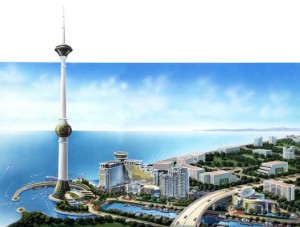 The recently reported partnership between real estate honcho Andrew Tan and Japanese tycoon Kazuo Okada will cover more than just the latter’s $2 billion casino project.
The recently reported partnership between real estate honcho Andrew Tan and Japanese tycoon Kazuo Okada will cover more than just the latter’s $2 billion casino project.
The Inquirer reports that the Tan’s Empire East Land Holdings Inc. (ELI) has signed a joint agreement with Okada’s Tiger Resort Leisure and Entertainment Inc. to build a 12.95-hectare luxury residential resort condominium at Entertainment City, following news that our very own Steve Stradbrooke wrote about Tan’s partnership with Okada and fellow Filipino billionaire John Gokongwei on the Japanese tycoon’s casino project in the country.
This partnership between ELI and Tiger Resort will fall exclusively on the high-end residential development at Entertainment City, a surprising revelation considering that the former usually focuses on middle-income projects in the Philippines with sister company Megaworld involved in the more prestigious residential projects.
ELI president Anthony Charlemagne Yu was quoted by the Inquirer saying that living opportunities will also be a huge attraction at Entertainment City, particularly for foreigners and Filipino retirees. “We believe that Entertainment City Manila will not only be the biggest tourist hub in the Philippines in the next few years but also an excellent place to live in,” he said.
“With Empire East’s participation in Entertainment City, we intend to make this place not just a great resort for tourists, but also a great resort community for people to live in.”
The partnership with Okada’s Tiger Resort will also give Andrew Tan a bigger foothold in the upcoming casino and tourist hub. In addition to this new residential project and his stake in Okada’s casino project, Tan is also building his own casino in Entertainment City through Alliance Global Groups’ partnership with Genting Resorts. The $1.1 billion casino, which is expected to be called Resorts World Bayshore, will be the second casino to be built by the group under Travelers International Hotel Group. The first one, Resorts World Manila, already controls 40% of the Philippine gaming market.
